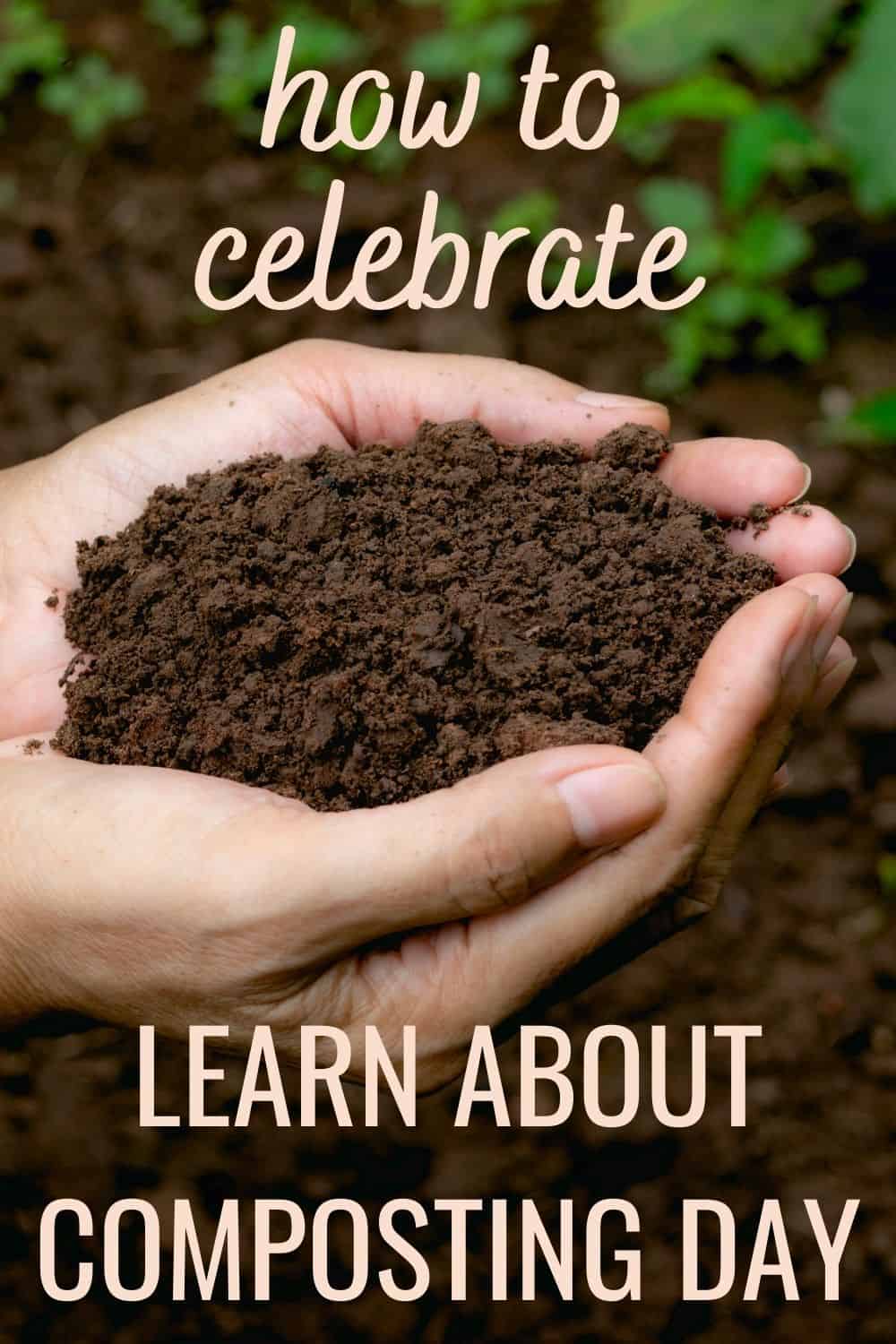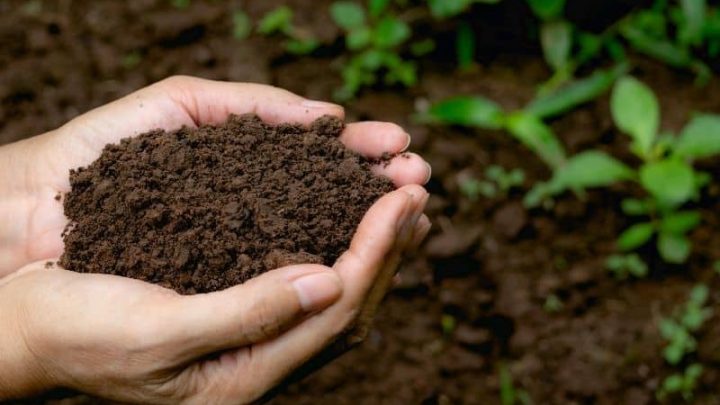People in the U.S. throw away 167 million tons of garbage each year, according to the Institute for Local Self-Reliance (ILSR). That’s a lot of trash! The good news is that we can cut the amount of garbage being set out at the curb by half, just by composting. And not only does composting keep waste out of landfills, but the process results in the dark, crumbly, nutrient-dense substance often referred to as “black gold” for its value in the garden. To raise awareness about the many benefits of compost, May 29 has been designated as Learn About Composting Day.
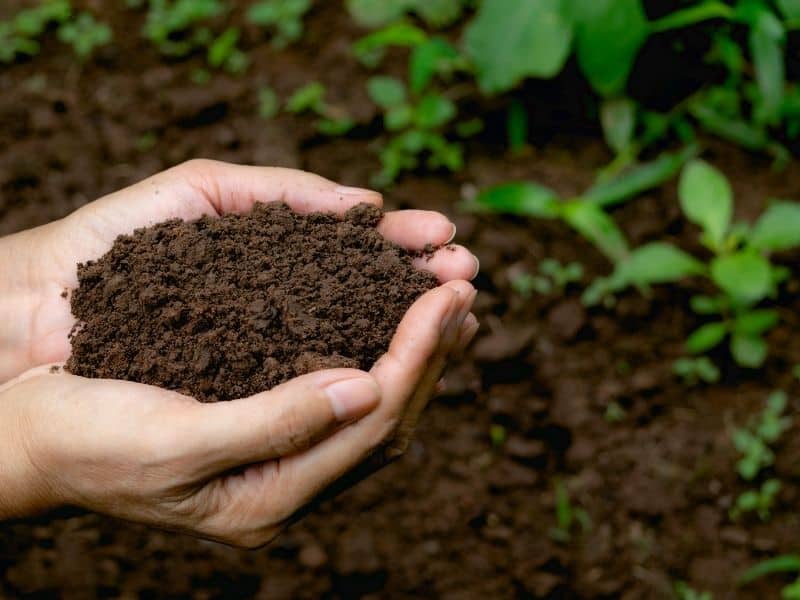
Why compost? Benefits of composting
As with many things, the more you know about compost, the more you appreciate its importance. Here are some of the benefits compost offers:
Compost improves the soil
As a gardener, you likely already know that mixing in compost improves the soil in many ways. It enhances soil structure and increases water and nutrient retention, as well as directly increasing fertility. Compost also increases microbial activity and reduces erosion. Of course, all of these improvements lead to healthier, stronger plants.
Compost protects the planet
Keeping compostables out of landfills and incinerators reduces the emission of methane and other pollutants. In fact, when applied to the soil, compost actually sequesters carbon! In other words, throwing away food scraps contributes to air pollution, while composting them — and then applying that compost to the soil — removes pollutants from the air.
Additionally, compost improves water quality by reducing stormwater runoff (by soaking up the water like a sponge) and then filtering the water, removing as much as 60 to 95% of pollutants from urban stormwater.
Compost provides jobs
Yes, compost even creates jobs for people! Commercial composting employs twice as many workers as landfills and four times as many as incinerators. Plus, when that compost is used in green infrastructures, such as green roofs, rain gardens, and bioswales, even more jobs are created.
Learn about topsoil vs compost.
Tips for celebrating Learn About Composting Day
You have likely already learned something about compost simply by reading this article, but hopefully, that has only made you eager for more! Delve deeper on May 29 by celebrating Learn About Composting Day. Here are a few ideas:
- Look up whether your town or city has a composting program, and learn how to get involved (it might be as easy as setting a designated container of food scraps by the curb). You might even be able to get free compost.
- Learn more about composting, through online research or by reading books on the subject. You might even be able to find a local composting workshop to participate in.
- Help raise awareness about composting by talking to others about what you learn through your research or by sharing infographics and articles like this one on social media.
- Advocate for composting policies and programs, including school and community-based composting (see the ILSR website for more details).
- Start a compost pile or bin in your backyard, or a worm bin in your home. It’s actually pretty easy — keep reading to learn more!
How to compost
Composting can sound like a daunting task, but it really only requires a few basic steps.
Prepare the location
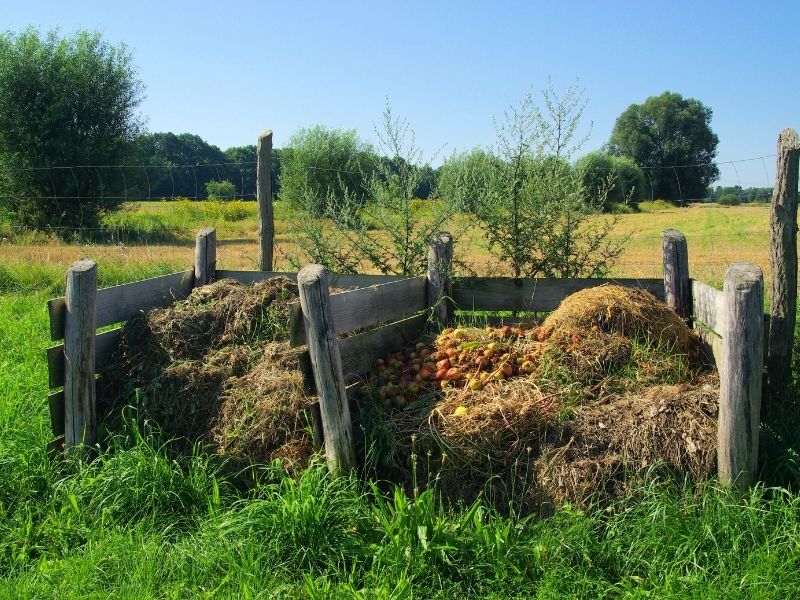
Choose a shaded location with good drainage for your compost. It’s also helpful to keep it convenient to the kitchen so you don’t have to go far to empty the kitchen compost pail.
If desired, purchase or build a bin to contain the compost (recommended if you live in a neighborhood); otherwise, simply designate a small area for a pile. If you don’t have space for an outdoor bin or pile, try vermiculture! The EPA website provides a good overview of how to start and maintain an indoor worm bin — it’s a bit different from outdoor composting but still fairly simple.
Add the proper ingredients
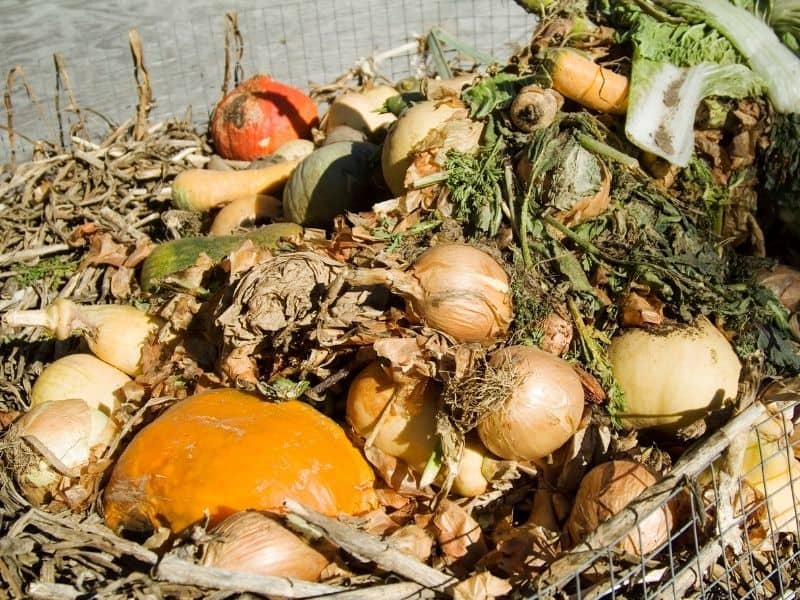
Compost requires both green, or nitrogen-rich, materials (e.g., food scraps and grass clippings) and brown, or carbon-rich, materials (e.g., dried leaves, twigs, wood chips, and paper). Different sources will recommend varying ratios, ranging from half and half to three parts brown to one part green. Basically, aim to have a bit more brown materials in the compost than green.
When adding food scraps, make sure to bury them under a few inches of brown materials or finished compost. Here’s what to include:
- fruit and vegetable scraps
- eggshells
- coffee grounds and filters
- teabags
- nut shells
- shredded paper
- cardboard
- yard trimmings
- grass clippings
- hay and straw
- leaves
- sawdust and wood chips
- cotton and wool material
- hair and fur
- fireplace ashes
A few things should not be composted, including meat and other animal products, pet waste (except rabbit), coal or charcoal ash, any part of black walnut trees, diseased or insect-ridden plants, or yard trimmings treated with pesticides or herbicides.
Maintain the pile
You don’t actually have to turn your compost pile, but it does help speed up the process. An unturned pile will be ready in about a year, while a pile turned every week can result in finished compost within two to five months.
Additionally, covering the compost with a tarp will help retain moisture, and if the pile becomes too dry, you may want to hose it down. Squeezing a handful of compost from anywhere in the pile should result in a few drops of water between your fingers, and the compost should feel like a wrung-out sponge. It helps to have two compost piles: one curing and one that you add materials to.
Use the compost!
When your compost is ready, it will be a rich, dark brown and have a crumbly texture and earthy smell. Incorporate it into your garden soil, use it as mulch, or make your own potting mix with it.
How will you celebrate Learn About Composting Day?
You’ve already taken the first step in observing Learn About Composting Day by reading this article! How else will you celebrate?
